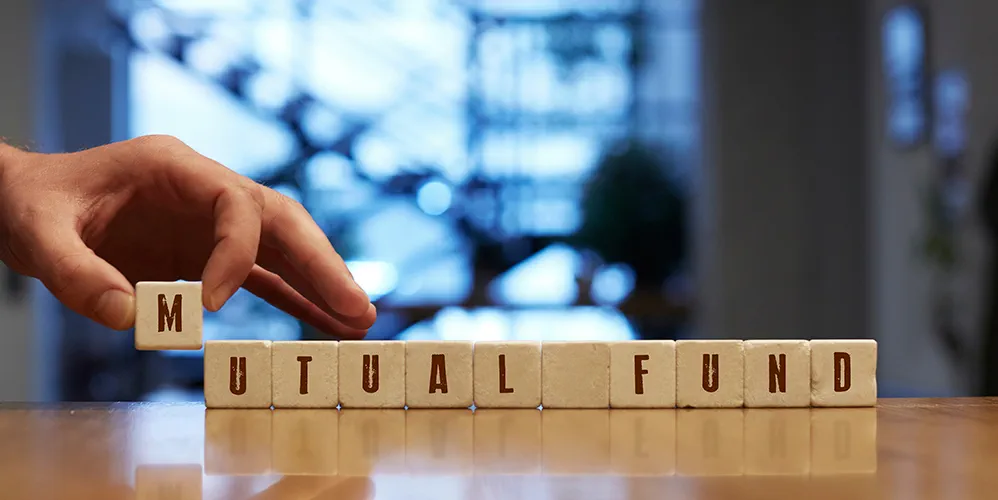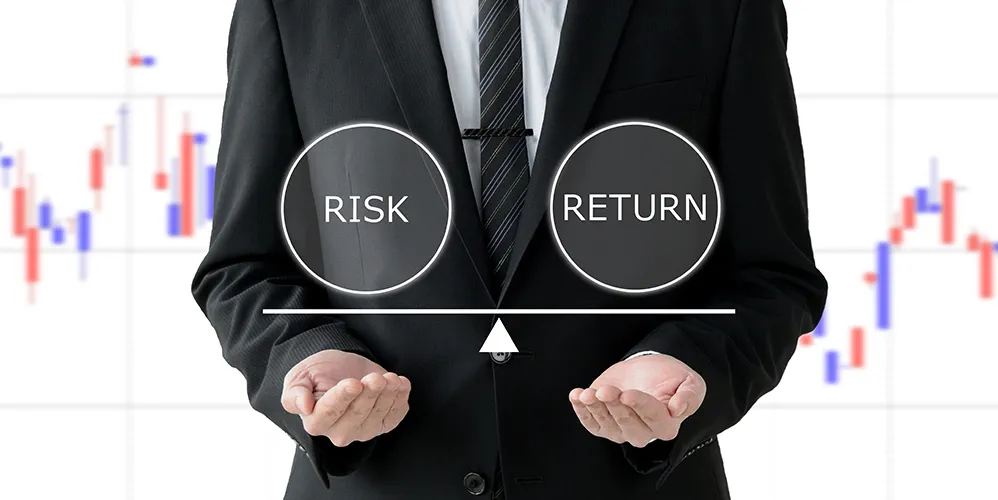
How to Use a Demat Account
24 Aug 2023

Table of Content
A Demat account is a powerful tool for investors, providing numerous benefits and simplifying the process of holding and trading securities. By eliminating the need for physical share certificates, a Demat account streamlines the management of investments, making it more convenient and secure.
Ready to unravel the world of finance? So, what's the deal with Demat accounts, you ask? Well, they're like the superheroes of the investment world, here to save you from the hassles of handling physical securities.
Picture this: no more worrying about lost or damaged share certificates, bidding farewell to cumbersome paperwork, and embracing the convenience of digital transactions. Sounds like a dream, right? That's precisely what a Demat account offers—a secure and efficient way to hold and trade your stocks, bonds, mutual funds, and more, all in electronic form.
But how to use a Demat account? Think of it as having a virtual vault where your securities reside. You can buy or sell them with just a few clicks, monitor your portfolio's performance, and keep track of your investment journey from the comfort of your favorite device.
By the end, you'll be well-equipped to navigate the dynamic landscape of securities trading and maximize your financial potential.
What is the Use of a Demat Account?
Think of it as your gateway to the digital realm of investments . So, what's its purpose, you ask?
A Demat account, short for "Dematerialized account," is a secure and convenient repository for all your financial securities in electronic form. It eliminates the requirement for physical share certificates, making your life as an investor much easier.
Here's the scoop: When you buy stocks, bonds, mutual funds, or other securities, they are converted from their physical form into electronic entries and stored in your Demat account. It's like having a virtual vault where you can safely keep track of your without worrying about the risks associated with physical documents.
Plus, it offers a world of possibilities. You can access real-time information about your holdings, monitor their performance, and even receive corporate benefits like dividends and bonus shares directly into your account. It's like having your financial command centre at your fingertips.
How to Use a Demat Account?
Using a Demat account is as easy as pie! Let's walk through the simple steps to help you navigate the world of digital investments with confidence:
- Open a Demat Account: First, you must open a Demat account with a registered Depository Participant (DP). DP could be a bank, financial institution, or brokerage firm. They will be responsible for maintaining your Demat account and facilitating your transactions.
Next, you must fill out an account opening form, provide the required documents (such as identity proof, address proof, and PAN card), and complete the verification process.
- Link Your Bank Account: Once your Demat account is open, you must link it to your bank account. This enables the smooth transfer of funds for buying and selling securities. You may need to provide your bank account details and complete the necessary formalities to establish the link.
- Choose a Trading Platform: To execute trades, you'll need a trading platform. It could be an online trading portal your DP provides, a mobile app, or trading software. Your DP will guide you on the options and help you set up the platform for easy access.
- Research and Select Securities: Now comes the exciting part—choosing the securities you want to invest in. Conduct thorough research, analyse market trends, and consider your investment goals.
You can explore stocks, bonds, mutual funds, ETFs, and other financial instruments. Remember your risk appetite, investment horizon, and diversification strategy while selecting.
- Place Orders: Once you've decided on the securities you want to buy or sell, log in to your trading platform. Locate the order placement section and enter the security details, quantity, price, and other relevant information. Then, review the order carefully and submit it. Voila! Your order has been placed.
- Monitor Your Portfolio: With a Demat account, you can easily monitor the performance of your portfolio. Keep an eye on market fluctuations, track the value of your holdings, and stay informed about corporate actions that may affect your investments.
Most trading platforms provide real-time market data, portfolio tracking tools, and reports to help you stay updated.
- Settlement: The proceeds will be credited to your Demat account when you sell securities. Similarly, when you buy securities, they will be debited from your account and added to your holdings. The settlement process usually takes a few days, and you'll receive notifications and statements reflecting the transactions.
- Stay Informed: Keep learning and stay informed about the latest developments in the financial markets. Read on investment strategies, attend webinars or workshops, and stay connected with the financial community.
How to Operate a Demat Account?
Operating a Demat account involves a few key steps. Here's a general guide on how to operate a Demat account:
Open a Demat Account: To operate a Demat account, you first need to open one with a depository participant (DP) such as a bank or a brokerage firm. You must provide the necessary documents and complete the account opening process per the DP's requirements.
Linking Your Bank Account: Once your Demat account is opened, link it with your bank account. This linkage is necessary for seamless transactions, such as receiving funds from selling shares or transferring funds for purchasing shares.
Obtaining a Unique Client ID: The DP will provide you with a unique client identification number (Client ID). This ID is crucial for all your transactions and communications related to your Demat account.
Buying and Selling Shares: Once your Demat account is active and accessible, you can start buying and selling shares.
Here's a general process for trading:
- Place Orders: Use your online trading platform or mobile app, or call your broker to place buy or sell orders for shares. Provide the necessary details, such as the stock name, quantity, price, and type of order (market order, limit order, etc.).
- Confirmation and Execution: After placing an order, you will receive a confirmation specifying the transaction details. Once the order is executed, the shares will be credited or debited from your Demat account.
- Settlement: Settlement is exchanging shares and funds between the buyer and seller. In India, settlement typically takes two business days (T+2). The shares you purchase will be credited to your Demat account, and the funds from selling shares will be transferred to your linked bank account.
- Monitoring Your Holdings: You can regularly monitor your shareholdings and transactions through your Demat account. The account statement provided by your DP will help you keep track of your holdings, transactions, and any changes in your portfolio.
Also check - How to Open Demat Account Online in Easy Steps
Can I Trade Shares without a Demat Account?
No, trading shares without a Demat account is impossible in the Indian stock market. This is because the Securities and Exchange Board of India (SEBI), the regulatory body governing the Indian securities market, made it mandatory to have a Demat account for trading and holding shares in a Dematerialised form.
A Demat account is a secure repository for holding and transacting in electronic securities. It eliminates the need for physical share certificates, making the trading process more efficient and convenient. All the shares you purchase are credited to your Demat account, and when you sell shares, they are debited from the account.
When you buy shares, they are converted from physical certificates to electronic forms and stored in your Demat account. This allows for seamless trading, quick settlements, and easier portfolio management. It also provides additional benefits such as electronic record-keeping, accessibility to corporate actions, and secure storage of your securities.
Therefore, if you want to trade shares in the Indian stock market, you must have a Demat account. It is an essential requirement for trading and holding securities in electronic form.
Ten Most Important Terms Associated with Demat Accounts
Here are ten essential terms associated with a Demat account:
- Dematerialization converts physical securities, such as share certificates, into electronic form. Dematerialization enables the seamless trading and holding of securities in a Demat account.
- Depository Participant (DP): An intermediary registered with a depository that offers Demat account services to investors. DPs are responsible for maintaining Demat accounts, facilitating transactions, and providing related services.
- Beneficial Owner: The individual or entity that ultimately owns securities held in a Demat account. The beneficial owner enjoys the rights and benefits associated with the securities, such as receiving dividends and participating in corporate actions.
- ISIN (International Securities Identification Number): A unique alphanumeric code assigned to each security, enabling its identification on a global level. The ISIN helps identify and track securities held in a Demat account.
- DP ID (Depository Participant Identification): A unique identification number assigned to each Depository Participant. The DP ID and client ID are used to identify and differentiate Demat accounts maintained by different DPs.
- Client ID: A unique identification number assigned to an investor by the Depository Participant. The client ID and the DP ID help identify and distinguish individual Demat accounts within a particular DP.
- Nominee: A person designated by the Demat account holder to receive the securities in case of the account holder's demise. The nominee plays a crucial role in safeguarding the account holder's interests and ensuring the smooth transfer of securities.
- Demat Statement: A statement provided by the Depository Participant that contains detailed information about the securities held in a Demat account. It includes transaction history, current holdings, and other relevant details, which record the account's activities.
- Power of Attorney (POA): A legal document that grants authority to a designated person (often the DP) to manage and operate the Demat account on behalf of the account holder. POA facilitates smoother transaction execution and other operational activities.
- Freeze and Unfreeze: These terms refer to the temporary restriction or removal of certain functionalities in a Demat account. An account can be frozen to prevent unwanted transactions or changes, providing an additional layer of security.
Also Read - Features & Benefits of Demat Account Opening
Conclusion
To maximize your Demat account, follow these steps to operate it effectively. First, open a Demat account with a registered Depository Participant (DP) and complete the necessary documentation.
Next, link your Demat account with your bank account to enable seamless fund transfers. Then, familiarize yourself with your DP's trading platform, which will serve as your window to the world of securities trading.
Finally, Conduct thorough research on the securities you wish to invest in and place your buy/sell orders through the trading platform. Stay informed about market trends and monitor your portfolio's performance to make informed investment decisions.
By understanding the use and operation of a Demat account, you unlock a realm of possibilities in the world of investments. So, embrace the digital revolution, leverage the benefits of a Demat account, and embark on a rewarding journey towards financial success.
FAQs on Use of Demat Account
Q1. How can I use my Demat account for the first time?
A: To use your Demat account for the first time, you need to follow these steps:
- Open a Demat account with a registered Depository Participant (DP).
- Complete the necessary documentation and provide the required identification proofs.
- Link your Demat account with your bank account for seamless fund transfers.
- Familiarize yourself with the trading platform provided by your DP.
- Research the securities you wish to invest in and place your buy/sell orders through the trading platform.
Q2. Do I need a Demat account to trade shares?
A: Yes, it's mandatory to trade shares in India. Demat accounts to ensure secure electronic trading.
Q3. What happens if I don't utilise my Demat account?
A: No consequences, but be aware of maintenance fees or charges that may still apply.
Q4: Can someone else operate my Demat account?
A: Yes, grant them Power of Attorney (POA) after considering implications and responsibilities. Consult your Depository Participant or seek professional advice for specific concerns.
Popular Articles
-
Disclaimer
The contents of this article/infographic/picture/video are meant solely for information purposes and do not necessarily reflect the views of Bank of Baroda. The contents are generic in nature and for informational purposes only. It is not a substitute for specific advice in your own circumstances. Bank of Baroda and/ or its Affiliates and its subsidiaries make no representation as to the accuracy; completeness or reliability of any information contained herein or otherwise provided and hereby disclaim any liability with regard to the same. The information is subject to updation, completion, revision, verification and amendment and the same may change materially. The information is not intended for distribution or use by any person in any jurisdiction where such distribution or use would be contrary to law or regulation or would subject Bank of Baroda or its affiliates to any licensing or registration requirements. Bank of Baroda shall not be responsible for any direct/indirect loss or liability incurred by the reader for taking any financial decisions based on the contents and information mentioned. Please consult your financial advisor before making any financial decision.





